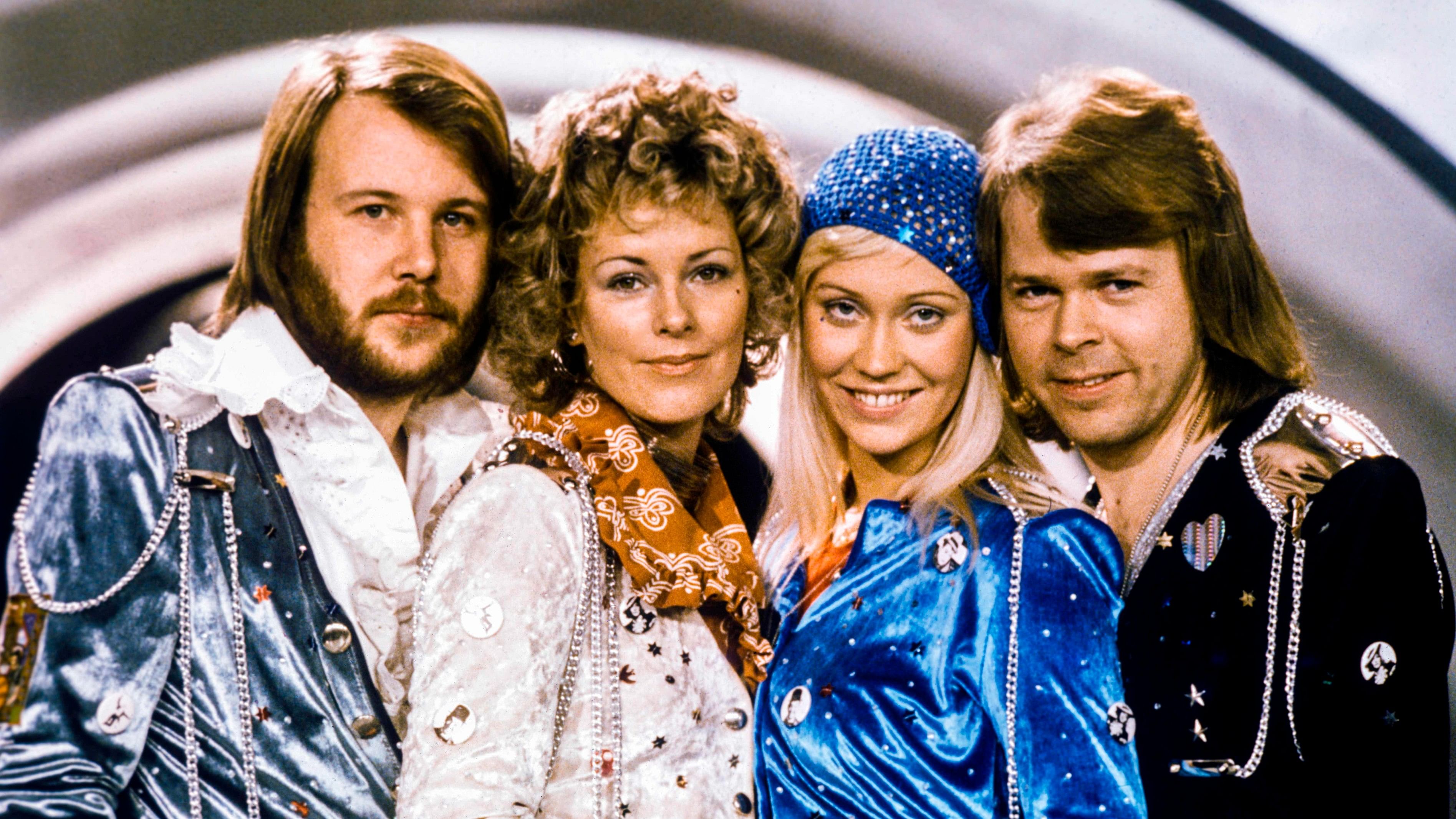
Picture taken in 1974 in Stockholm shows the Swedish pop group Abba with its members (L-R) Benny Andersson, Anni-Frid Lyngstad, Agnetha Faltskog and Bjorn Ulvaeus posing after winning the Swedish branch of the Eurovision Song Contest with their song "Waterloo". Sweden's legendary disco group ABBA announced on April 27, 2018 that they have reunited to record two new songs, 35 years after their last single. The quartet split up in 1982 after dominating the disco scene for more than a decade with hits like "Waterloo", "Dancing Queen", "Mamma Mia" and "Super Trouper".
Swedish pop group ABBA’s first internationally released album ‘Waterloo’, especially its title track remains popular 50 years after it first came out, sparking nostalgia. It was in March 1974 that ‘Waterloo’ was produced and released in Sweden and the song went on to win the Eurovision Song Contest in April that year, the first Swedish act to win that competition.
The legendary pop group has sold more than 400 million albums over half a century, topping the charts from America to Australia, pulling crowds onto dance floors with their catchy songs and flamboyant costumes.
‘Waterloo’ has continued to remain among their string of top hits along with ‘Dancing queen’, ‘Mamma Mia’, ‘Ring ring’ and others.
‘Waterloo’ ruled the airwaves on Radio Ceylon in the mid-70s when I first heard the song. ABBA had suddenly burst on to the music scene and the youth got totally blown away with their songs — catchy, sweet and universal with distinctive harmonies.
A generation now in their 60s and 70s continue to listen to ABBA and recall with fond nostalgia associated with ‘Waterloo’ and other hits.
In 1973 when the band was brand new and despite some brilliant tracks, ABBA, surprisingly failed to qualify in Sweden for the Eurovision Song Contest. But the following year, as an unknown band outside of Sweden, ABBA went on to win the contest with ‘Waterloo’, causing a sensation.
Not only the song but their performance — a starburst-shaped guitar, glitzy costumes, silver platform boots — was a class act. ABBA won the hearts of music lovers worldwide.
‘Waterloo’ was the first of ABBA’s nine UK number one singles, topping the charts for two weeks. It went on to top the charts in European countries such as West Germany, Finland, Denmark, Belgium, Norway, Ireland, Switzerland and even South Africa. It reached the top 3 in France, Spain, Austria, the Netherlands and Sweden.
Beyond Europe, the song was among the top 10 in America, Canada, Australia, New Zealand and Rhodesia, something rare for a Eurovision song.
The lyrics were significant and telling. The song begins thus:
My, my,
At Waterloo, Napoleon did surrender
Oh yeah,
And I have met my destiny in quite a similar way,
The history book on the shelf,
is always repeating itself.
The chorus:
Waterloo
I was defeated you won the war;
Waterloo,
promise to love you forever more...
On the face of it, the song is about a woman who ‘surrenders’ to a man and promises to love him, ingeniously comparing romantic surrender to Napoleon’s defeat at the Battle of Waterloo.
‘Waterloo’ sold nearly six million copies (as of 2021), making it one of the best-selling singles in history, according to a London-based radio station.
There was no stopping ‘Waterloo’’s popularity. In 2020, television viewers in the UK voted the song as the greatest Eurovision Song Contest entry of all time. It beat 18 other songs.
After ‘Waterloo’, ABBA followed up with one album after another with several songs topping the charts. ‘Abba’, ‘Arrival’, ‘The Album’, ‘Voulez Vous’, ‘Super Trouper’ and ‘The Visitors’. Songs such as ‘Mamma Mia’, ‘Ring ring’, ‘SOS’, ‘Dancing queen’, ‘Money money money’, ‘Take a chance on me’, ‘Thank you for the music’, ‘Chiquitita’, ‘I have a dream’, ‘The winner takes it all’ and some others are evergreen hits.
With eight albums and nearly 90 songs, ABBA which got its name from the initials of the couples (Agnetha and Bjorn; Benny and Anni-Fred), was, sadly, disbanded in 1982. Still, they remained in the pop culture consciousness for decades. In 2021, they unexpectedly staged a comeback after 40 years with the release of ‘Voyage’.
What’s remarkable is, despite the advent of new music trends, ABBA has remained popular over the decades, earning new generations of fans through musicals and films using their music.